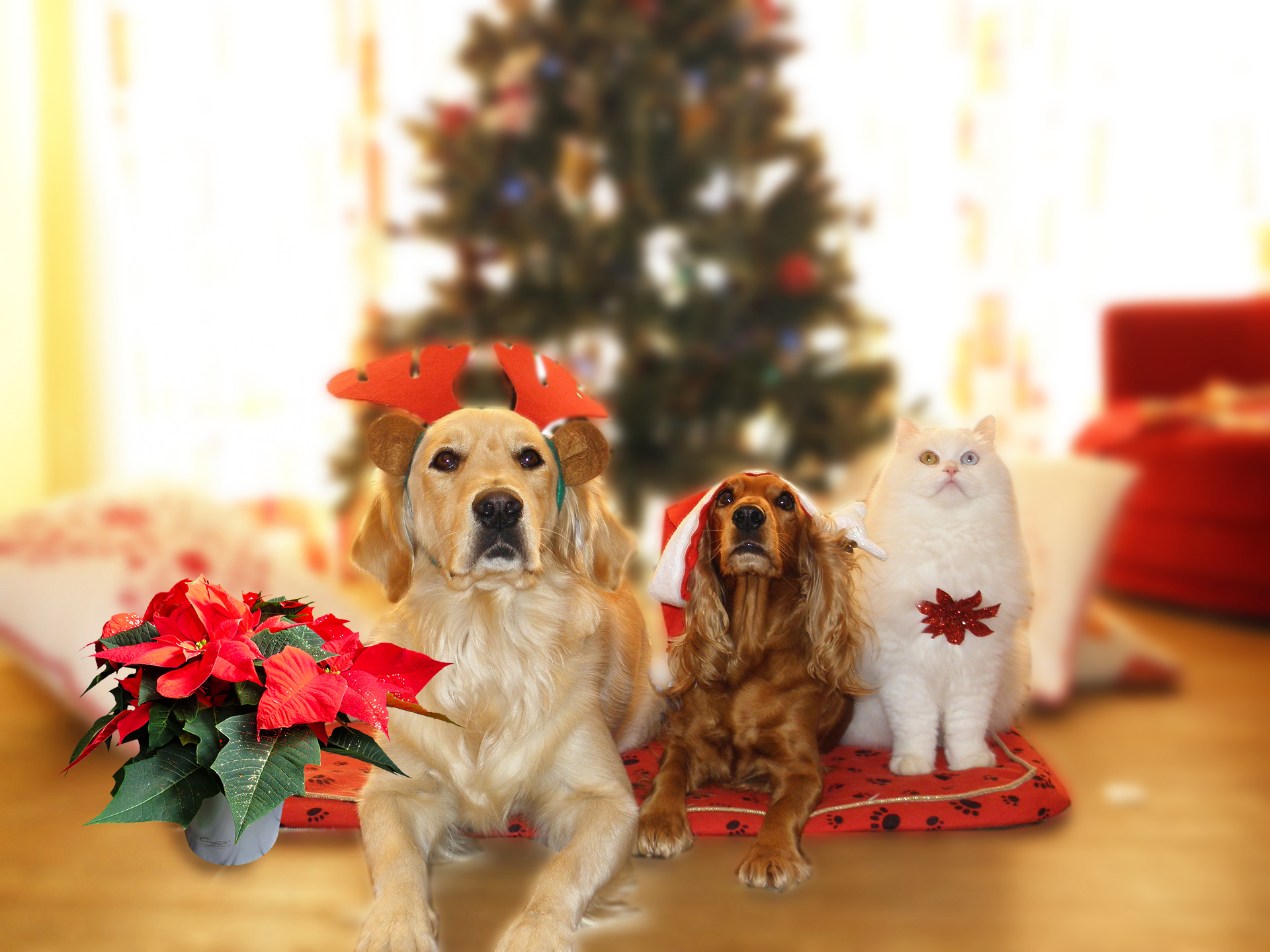

With the holiday season quickly approaching, gardeners of all kinds are starting to decorate their homes with seasonal plants like poinsettias, lilies, holly, mistletoe, and rosemary. While these plants are symbols of the holidays and can make your home look festive, they can also be extremely dangerous to cats and dogs.
The Poinsettia is perhaps the most common plant during the holiday season, as its bright red and green foliage and hardiness make it the perfect festive winter decoration. Poinsettias are possibly the most widely known toxic decorative plant, but this holiday staple typically only produces mild reactions. Digestion of this plant will rarely harm your pet to the extent that veterinary care is necessary. The white milky sap of the plant is slightly toxic and may cause mild irritation of the skin or stomach. If your cat or dog has eaten poinsettia, they may show signs of apparent drunkenness, vomiting, drooling, or diarrhea.
However, many other holiday plants have more extreme consequences if consumed by pets. Lilies (members of the genus Lilium) and Daylilies (Hemerocallis) are extremely dangerous to cats, causing kidney damage and acute renal failure. Lilies are so toxic to cats that licking pollen that may have landed on its coat is sometimes enough to cause a cat life threatening damage.
Other common holiday decorations including holly, European and American varieties of mistletoe, and rosemary can cause a range of negative reactions in dogs and cats. If your pet has eaten any of these plants, be sure to get veterinary treatment as soon as possible if negative reactions occur. Side effects to look out for include heavy or difficult breathing, severe vomiting, collapsing, and seizures. If your cat has ingested lilies, the animal should be taken in for treatment regardless of whether adverse reactions have started to show.
This holiday season, keep any harmful plants out of reach of wandering paws and snouts, and monitor your animals if you think they may have eaten anything unusual. Taking this extra precaution can keep the animals you love safe and happy while you decorate your home.

